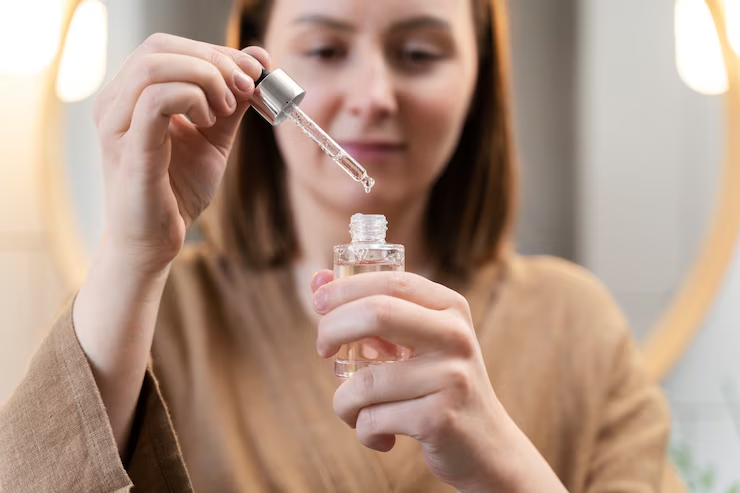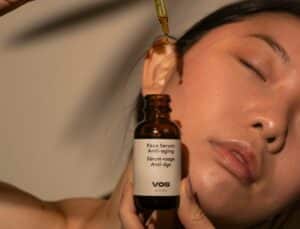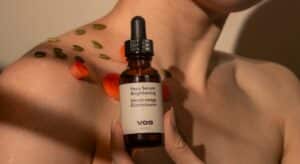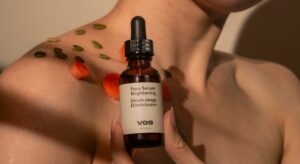A consistent skincare routine is one of the most effective ways to support skin health over time. Among the many products available, anti-aging face serums have gained attention for their role in targeting common concerns such as fine lines, loss of elasticity, uneven texture, and dullness. In this article, we examine how to choose the right serum, what ingredients are essential, and which formulations offer lasting benefits for a structured skincare regimen.
What Is a Face Serum?
A face serum is a lightweight, concentrated formula designed to deliver active ingredients directly to the skin. Unlike moisturizers, which are often thicker and sit on the surface to protect the skin barrier, serums are formulated for deeper absorption. Their purpose is to address specific concerns such as hydration, dark spots, or the visible signs of aging.
Why Include Anti-Aging Serums in a Skincare Routine?
As skin matures, it naturally produces less collagen and elastin. Exposure to sun, pollution, and lifestyle habits can accelerate this process, leading to visible signs of aging. Anti-aging serums are formulated with ingredients that target these concerns directly, offering a functional role in daily skin care maintenance. Incorporating them consistently can improve texture, tone, and firmness over time.

Key Ingredients to Look for in Anti-Aging Serums
The effectiveness of an anti-aging serum largely depends on its formulation. The following ingredients are commonly used and supported by dermatological research:
1. Retinol (Vitamin A)
Retinol is a well-known ingredient for improving cell turnover, minimizing the appearance of fine lines, and refining texture. It can be effective for long-term results but should be introduced slowly to prevent irritation, especially for sensitive skin types.
2. Hyaluronic Acid
Naturally found in the skin, hyaluronic acid attracts and retains moisture. When applied topically, it helps to hydrate and plump the skin, reducing the visibility of fine lines and contributing to smoother skin.
3. Vitamin C
Vitamin C is an antioxidant that supports skin tone and brightness. It may also help defend the skin from environmental damage caused by pollution and UV rays. Regular use of vitamin C serums can support a more even complexion.
4. Niacinamide (Vitamin B3)
Niacinamide helps improve skin barrier function, reduce inflammation, and balance oil production. It’s often included in anti-aging formulas for its calming and restorative effects.
5. Peptides
Peptides are chains of amino acids that support collagen production. They help maintain the skin’s structural integrity and are considered helpful for preserving firmness.
6. Alpha Hydroxy Acids (AHAs)
AHAs such as glycolic acid and lactic acid exfoliate the skin gently, removing dead cells and promoting a smoother surface. Used regularly, they can reduce the appearance of fine lines and encourage a more radiant look.
How to Choose the Best Anti-Aging Face Serum for Your Skin
There is no universal formula that suits all skin types. The key to selecting the best serum is understanding your individual skin needs and sensitivities.
Identify Your Primary Skin Concerns
Before choosing a product, it’s useful to define the main concerns you want to address. These might include:
- Dryness or dehydration
- Uneven skin tone or discoloration
- Fine lines and wrinkles
- Loss of firmness
- Dull or tired appearance
Once identified, look for serums with targeted ingredients that match these needs.
Consider Your Skin Type
Different skin types react differently to ingredients. For example:
- Oily or acne-prone skin may benefit from serums containing niacinamide or salicylic acid.
- Dry or mature skin might respond better to hyaluronic acid or squalane.
- Sensitive skin users may need gentler formulas without alcohol or fragrance, and a lower concentration of active ingredients like retinol.
Patch Test New Products
It’s advisable to patch test any new serum before applying it to the entire face. This helps ensure your skin doesn’t react negatively, especially when using potent active ingredients.

Best Practices for Using Anti-Aging Serums
Even the most effective serum must be used properly for the best results. Here are a few key application tips:
Apply to Clean, Dry Skin
Serums should be applied immediately after cleansing and before moisturizing. Clean skin allows better absorption of the active ingredients.
Use the Correct Amount
Typically, a few drops are sufficient. Applying too much serum does not necessarily improve its effectiveness and may lead to waste or irritation.
Follow With a Moisturizer
Moisturizers help seal in the serum and support the skin barrier. Always apply a suitable moisturizer after your serum, particularly when using actives like retinol or acids.
Don’t Skip Sunscreen
If your serum contains retinol, vitamin C, or acids, it’s essential to wear sunscreen during the day. These ingredients can make your skin more sensitive to sun exposure.
Recommended Anti-Aging Face Serums for Daily Use
While there are many options available, here are several face serums commonly recommended by dermatologists and users for their balanced formulations:
- Retinol-Based Serums
Ideal for targeting visible aging signs, retinol serums are effective when used at night. Choose lower concentrations if you’re new to retinol, and gradually increase usage as your skin builds tolerance.
- Vitamin C Serums
Best applied in the morning, vitamin C serums help brighten the complexion and protect against oxidative stress. Look for stable formulas with concentrations between 10% and 20%.
- Hydrating Serums with Hyaluronic Acid
Great for daily use, these serums add moisture and are well-tolerated by all skin types. They can be layered with most other products without causing interactions.
- Multi-Peptide Serums
These serums combine various peptides for collagen support and elasticity. They are typically fragrance-free and suitable for sensitive skin types.
Maintaining an Effective Skincare Routine
Be Consistent
The benefits of anti-aging serums build over time. Consistent use is essential for visible results. Avoid switching products frequently unless needed.
Simplify Your Routine
A routine does not need to be complicated. A basic regimen with cleanser, serum, moisturizer, and sunscreen is often sufficient. Adding too many active products can overwhelm the skin.
Listen to Your Skin
Skin condition can change with seasons, diet, stress, and age. Adjust your serum use based on how your skin feels. If irritation occurs, reduce frequency or switch to a milder option.
Conclusion
Establishing a reliable skincare routine is essential for long-term skin health, and incorporating targeted treatments like serums can make a significant difference. The Best Anti-Aging Face Serums to Boost Your Skincare Routine are those that match your individual skin needs, contain effective ingredients, and are used consistently. Whether your goal is to minimize early signs of aging or to maintain firmness and hydration, selecting the right product and using it as part of a structured regimen can help support your skin’s appearance and comfort.





